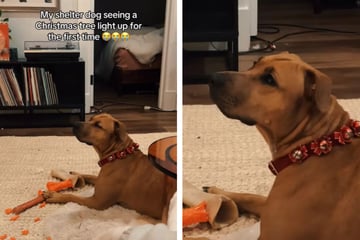Do dogs get jealous? What to do when your dog gets green-eyed
Dogs, like their human companions, have feelings and a sudden shift in behavior may be a sign of jealousy. TAG24's dog guide explains what causes jealousy in dogs, how to prevent it, and what to do about it.
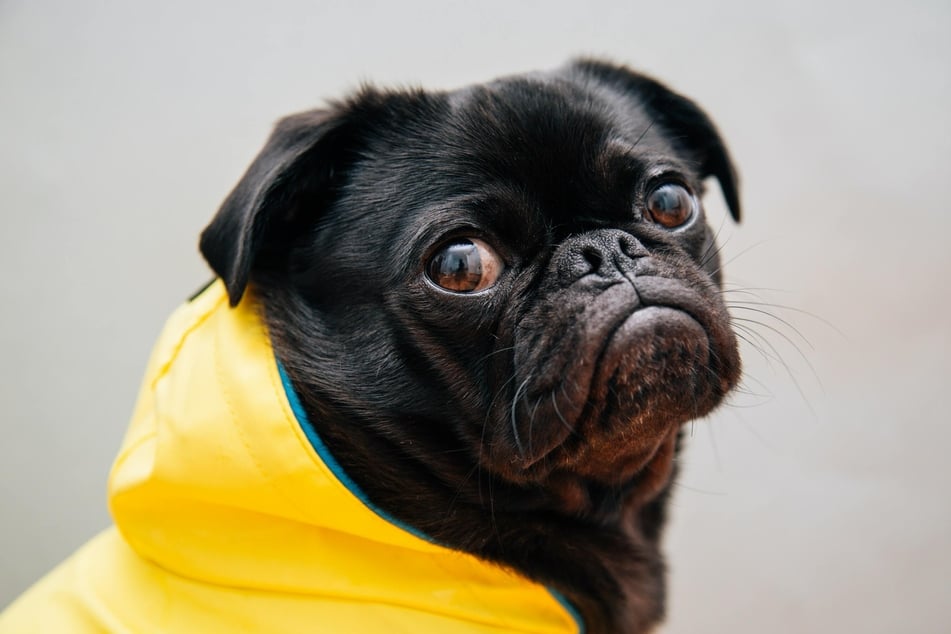
Dogs may get jealous when their owner pets another pupper, dotes on the baby, or cancels play time to watch TV.
And they aren't the only ones: cats and other pets can get jealous too.
There is still disagreement in canine research circles whether dogs experience jealousy in the human sense. That said, jealous behavior is often synonymous with defending resources, and for a dog, resources are what it requires to satisfy its needs.
After the creature comforts of food and water, love and affection from its owner are a very valuable resource for a dog. And they don't like to share this treasured resource.
If dogs suddenly have to share, their position within the family changes, or they lose a privilege, this can trigger a strong stress reaction.
Why do dogs get jealous?
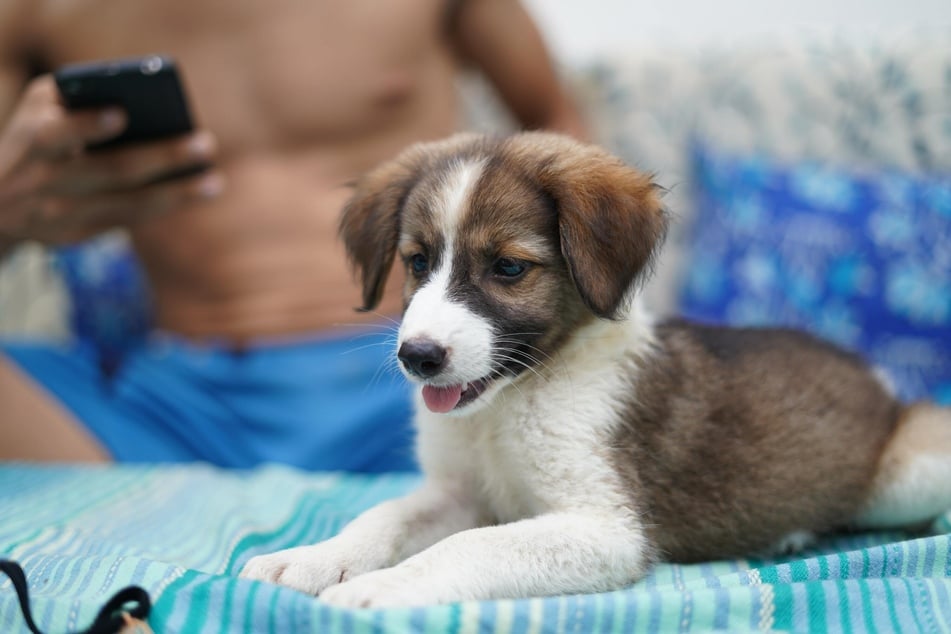
Jealousy in dogs stems from distrust, frustration, insecurity, and fear of loss when, for example, there are changes to the household dynamic.
These are some of the most common things that trigger jealousy:
- (new) dogs
- other pets like cats
- (new) romantic partners or housemates
- a baby
- devices taking away their owners' focus
Whenever a dog's position in the pack isn't clear, or the dog has competition and fears for its toys, a place to lie down, food, pets, or attention from the owner, it can become envious. This emotion can also be triggered if a dog lacks security and its needs are not sufficiently satisfied.
Jealousy is also a common canine response to no longer being the center of its owner's attention.
Signs of jealousy in dogs
A dog's jealousy manifests itself in different ways, depending on the individual animal, its environment, and the situation. Not every dog becomes jealous.
Generally, a severe change in normal behavior is a sign of jealousy.
Your dog may exhibit jealousy by yelping, barking, nudging, licking, becoming restless, or jumping up. Sudden pushiness or unusual compulsive behavior are also indications of a jealous dog.
Barking, growling, acting aggressively, or ignoring the person it perceives as a competitor to the owner's affection – such as a new partner, a baby, or another animal – are also red flags.
In an attempt to secure its position in the household, a dog can mark its territory or protest by leaving messes. Refusing to feed is also a possibility.
Beware: All the symptoms and behavioral changes mentioned here can indicate a serious illness. If a dog has a significant change in temperament, you should have it checked out by a veterinarian.
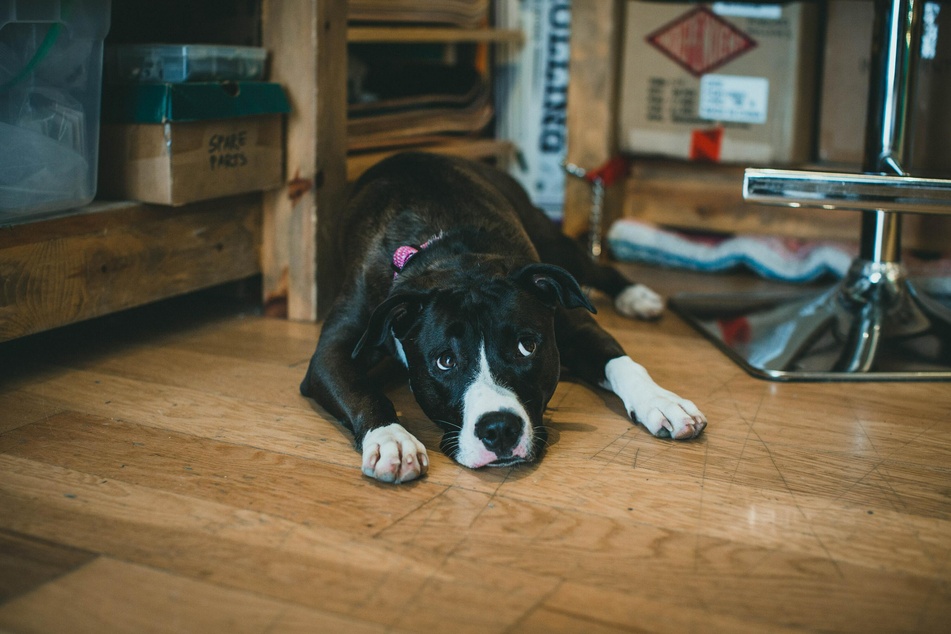
Dealing with jealousy between dogs
Dogs can get jealous of other dogs. Jealousy is not uncommon for households with multiple dogs. It can rear its ugly head in the form of aggressive behavior, food envy, and other behavioral issues.
To insure harmony between the animals, you have to treat them equally from the beginning. All animals need the same amount of attention and love.
First impressions are also important to animals, and for dogs, it's important that the first meet takes place on neutral ground. A walk outside is the perfect setting, and they can get to know each other by running around.
If the dogs get into fights, then the pecking order isn't clear. Dog owners shouldn't prevent their dogs from establishing a hierarchy. These are pack animals who like to have a clear social structure. You can tell who's in charge by noting who gets the first kibble bits, comes though the door, and who gets first dibs on the comfiest cushion.
But regardless of the pecking order, it's essential that the lower ranking dog has equal access to food and toys. The beta dog needs the same amount of love and attention as the alpha one, but it doesn't need any extra love or treats.
Canine hierarchies also don't erase the need for clearly defined rules. The higher-ranking dog should not interfere, yelp, or bark when owners pet, call, or play with the other animal.
To make your commands clearer, it is important to start with the dog's name: "Fido, sit!" Of course, you first have to make sure everyone's aware of their own name. Simply have both dogs sit in front of you and call out the name of one dog and give the corresponding dog a reward, like a treat, when it answers to its name. For the best results, this exercise should be repeated often.
The next level of the exercise is to call one dog and reward it when it responds to the right name, while sending away the one who reacts to the wrong name.
Repetition and reward are both key!
What to do if the dog is jealous of the baby
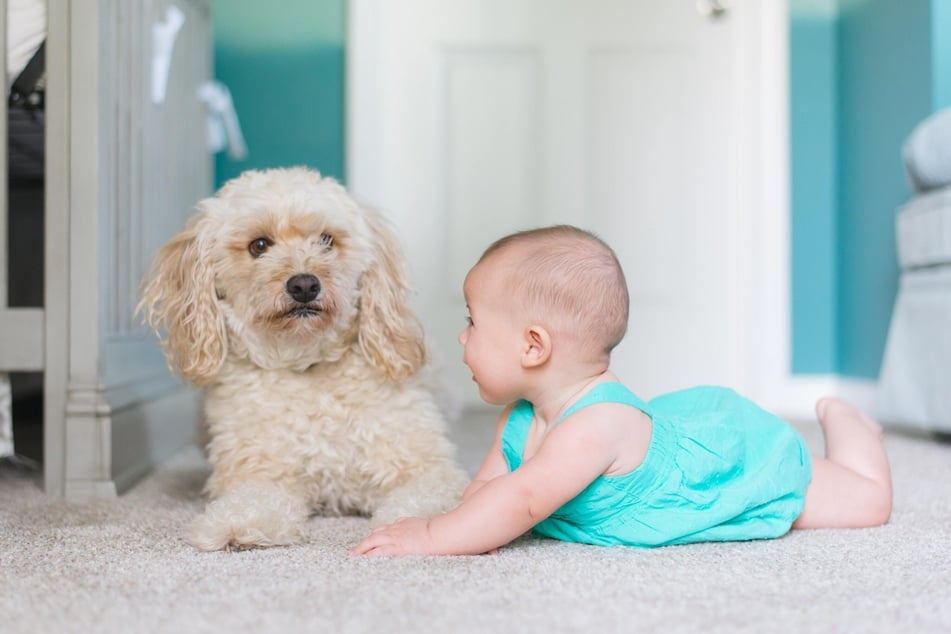
A new addition to the family is often stressful for dogs. It is suddenly confronted with different smells and unfamiliar noises, the household dynamic and the daily routine change. Its owners behave differently and dote on the baby. All of these changes can make a dog feel like it's lost its place in the family.
There are simple tricks to get dog and baby used to each other.
But the key to success is to adequately meet the dog's need for love and attention.
In concrete terms, this means making the daily routine work for both the baby and the dog. One way to do this is by taking them both out for a walk at the same time. This allows you to maintain your pet's routine by respecting its need for exercise and play. Clear rules and a fixed schedule are what provide a sense of security, and so does a reserved space.
It's also a good idea to play with and praise your dog with words and games while the baby is in your arms. You can also help it get used to the baby's smell by giving it an item which has that scent. This will also prevent the dog from trying to constantly sniff at the baby.
And when the baby's asleep, and you have energy, give the dog some extra cuddles and play with it.
How to deal with a jealous dog: Tips to train the jealousy away
You can train your dog to deal with jealousy in a few easy steps.
1. Play a familiar game like fetch alone with your dog.
2. Introduce a perceived competitor, someone your dog is jealous of, to the game.
3. Continue playing with the dog while the competitor is present.
4. Interact with the competitor, for example by giving them a hug, then immediately return to the dog and continue playing. One way to do this is by hiding the ball during fetch and briefly interacting with the competitor, then looking back to the dog rewarding it and then throwing the ball.
The goal of the exercise is to make the dog understand that whoever it perceives as a competitor really isn't one and that no one's needs will be ignored. The exercise requires some patience and repetition.
Generally when a new person, pet, or cell phone, is around the dog it helps to play with, praise, and respond to the dog.
Don't reward or punish a dog if it starts exhibiting jealous behavior. Instead, ignoring or calmly send it away is best.
Preventing jealousy in dogs
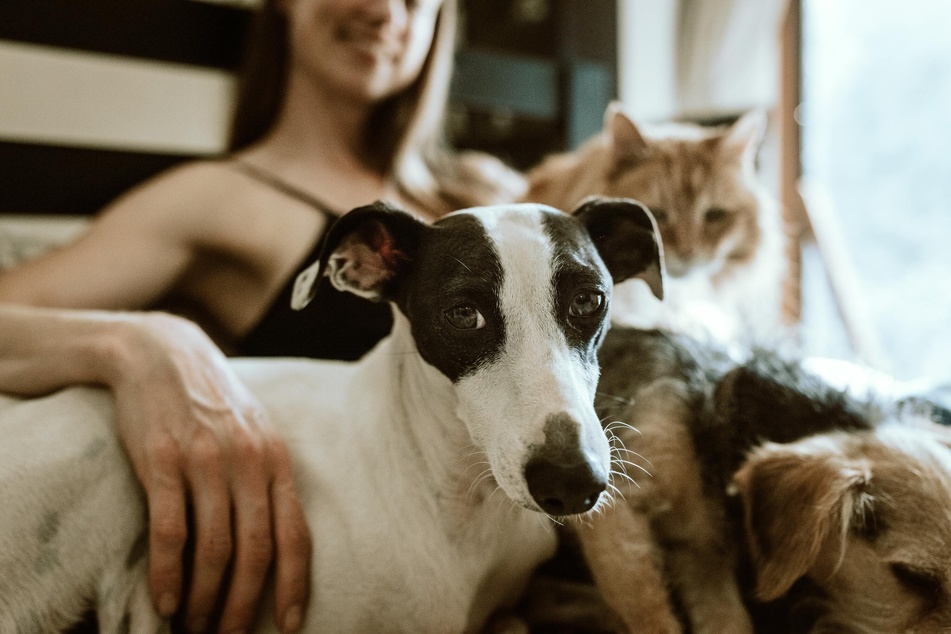
When it comes to jealousy, it's all about the relationship between the dog and its owner. Too much attention and you'll create an unhealthy dependence, which will only make being alone or independent more difficult for the dog.
The cornerstones of successful dog training are consistency, determination, and clear rules.
A dog has to learn that it's owner's world does not revolve around it. That's why it's important for pets to learn how to entertain themselves.
If you want to prevent your dog from getting jelly of other animals and people, avoid situations where it might feel neglected and make sure you always split your attention. This can mean petting both dogs at the same time, petting the dog while holding the baby or working on a device, and involving a new partner in playtime.
Another way to avoid jealousy is to make sure dogs are getting enough mental and physical exercise. Animals need stimulation, attention, and rest. Otherwise, just like their human companions, they can get bored or frustrated.
When dogs get jealous, it's a sign of fear, insecurity, or simply a need for attention. An animal's bad behavior isn't something to be punished, it's a cry for help. Make sure you show your furry friend that it's got a permanent place in your heart.
Cover photo: Unsplash/Charles Deluvio

